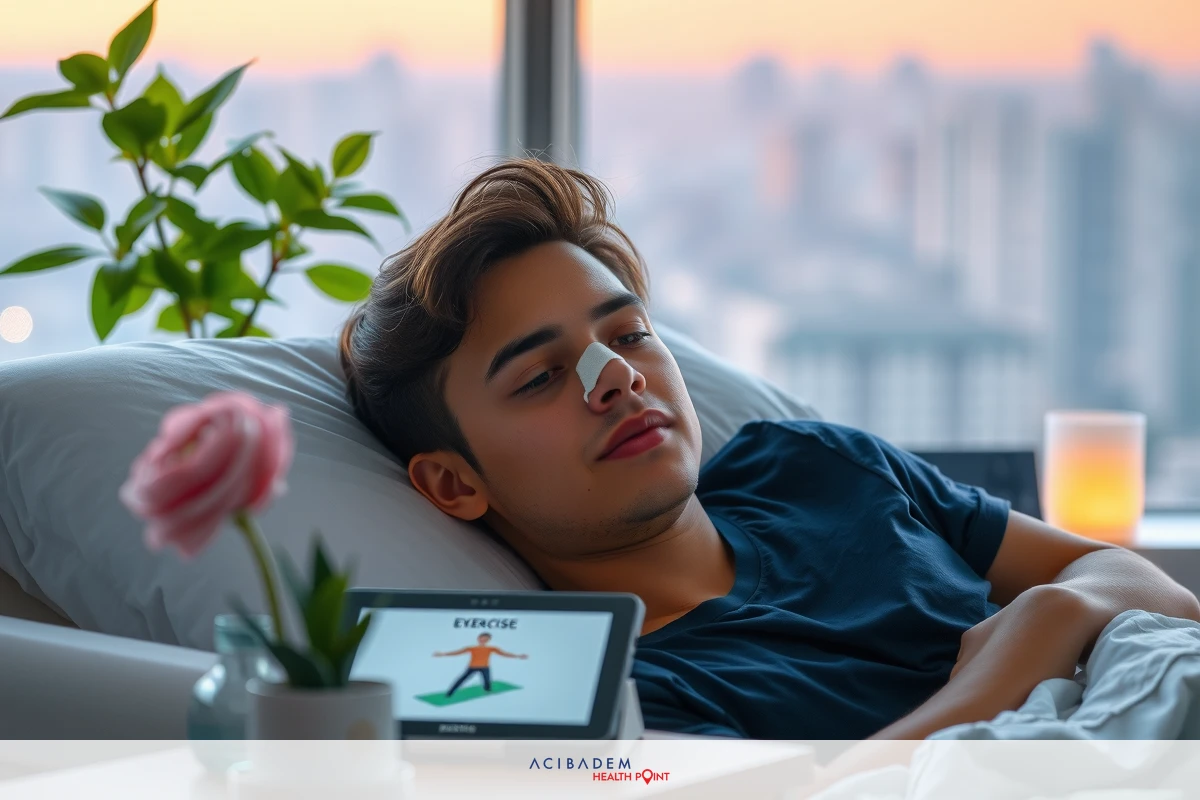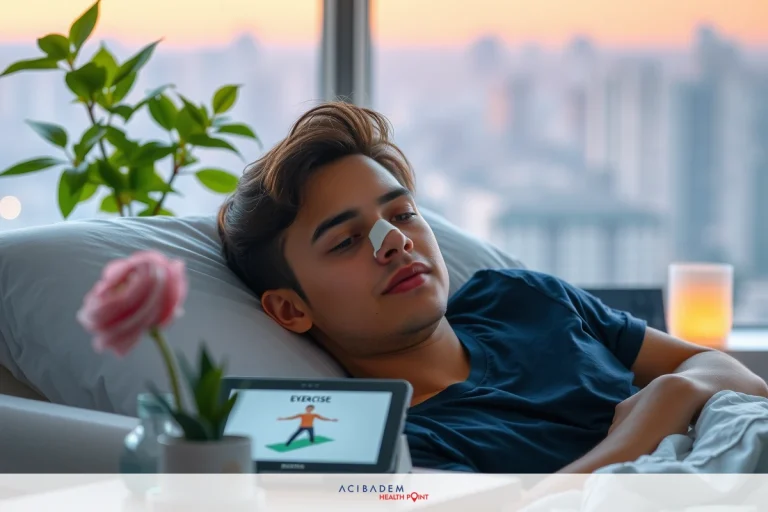When Can You Go to the Gym After Rhinoplasty?
When Can You Go to the Gym After Rhinoplasty? The journey through rhinoplasty, often referred to as a nose job, is one that requires patience and care. Physical activity, especially gym workouts, poses questions of timing post-surgery for many patients.
Understanding when it’s safe to return to the gym can be complex because it depends on several factors such as individual health status, healing process speed, and type of exercises intended. It’s essential not just for comfort but also ensuring optimal recovery and results from the surgery.
A quick dash back into strenuous activities might pose risks including bleeding or shifting of the nasal structures before solid healing occurs. Yet remaining inactive for too long could also affect overall wellness negatively. Therefore striking balance between rest and physical activity proves vital in successful recovery from rhinoplasty.
Immediate Post-Operative Period
The immediate post-operative period following rhinoplasty is a critical time for ensuring optimal healing and recovery. During this stage, the focus should be on resting and allowing your body to devote its energy towards repairing itself. The concept of returning to fitness after nose surgery may seem enticing for gym enthusiasts but it’s pivotal to understand that any form of exercise immediately after a nose job can potentially disrupt the healing process.
Exercise increases blood pressure which can exacerbate swelling or even lead to bleeding at the surgical site. Therefore, workout restrictions following rhinoplasty are typically stringent during this initial phase. It’s not uncommon for surgeons to advise against bending over or lifting heavy objects as these actions could increase pressure in the head region and consequently risk disturbing delicate nasal structures.
It’s also important to note that certain medications prescribed as part of post-operative care might affect physical performance capacity such as causing dizziness or fatigue. Even light exercises like walking can sometimes cause discomfort or pose challenges in breathing due to internal nasal splints often placed during surgery.
Understanding these factors underscores why taking it slow with resuming physical activity post-nose reshaping is crucial. Trusting your surgeon’s guidelines regarding rest times ensures you get back into the gym safely without compromising results from your rhinoplasty procedure.
Gradual Resumption of Physical Activity
Transitioning from a period of rest post-rhinoplasty to an active lifestyle isn’t instantaneous but happens gradually. It’s a stepwise process, starting with light workouts eventually progressing toward more strenuous exercises. The exact timeline for this varies among individuals and depends on factors such as the body’s healing pace and overall physical condition prior to surgery.
Light activities like walking are generally permissible within the first couple of weeks after surgery. This can help mitigate feelings of sluggishness due to prolonged inactivity without jeopardizing recovery progress. But remember, it’s vital not rush or force your body during this delicate stage; patience is key when returning to fitness after nose surgery.
The increase in intensity should be proportionate with how well you feel physically and mentally. For example, resuming yoga or pilates may occur sooner than high-impact cardio sessions given they involve less vigorous movements yet still contribute positively towards general fitness levels. However, even then caution should prevail – positions that require head down maneuvers could cause discomfort or strain nasal structures
at early stages post-surgery.

As weeks go by and healing progresses smoothly, patients often discover that they can gradually include more demanding routines in their workout regimen. This should be done under the professional guidance of both their surgeon and a personal trainer who is familiar with the specific considerations of post-operative care following rhinoplasty.
Listening to your own body proves invaluable throughout this phase while navigating through restrictions associated with gym after rhinoplasty. Any signs of pain or extreme fatigue signal need for rest rather than pushing harder against potentially harmful boundaries during nose job recovery timeline.
Full Return to Gym and Intense Workouts
The true test of recovery from rhinoplasty surgery often comes when you step back into the gym for your first intense workout. It’s a moment filled with anticipation, but it should be approached carefully. Generally, most patients can confidently return to their pre-surgery exercise routine around six weeks post-operation, given they have healed well without complications.
It’s vital not to misconstrue this as an invitation to plunge headfirst into high-intensity workouts without caution. The initial few sessions might require modifications in exercises especially those involving facial strain or risk of accidental hits to the nose such as boxing or certain team sports. Remember that while external tissues might appear healed, internal structures could still be settling down after being reshaped during surgery.
Listening attentively to your body becomes paramount at this stage too; discomfort during any particular activity is a signal worth paying heed to! While it’s normal for there to be some degree of apprehension upon returning to fitness after nose surgery, if properly managed under professional guidance these concerns usually dissipate over time allowing full enjoyment of physical activities again.
It may also help alleviate anxieties around exercising by keeping regular follow-ups with your surgeon even after reaching this milestone in recovery journey from rhinoplasty procedure.
Absolute completion of nose reshaping recovery marks not just physical restoration but also mental triumph over challenges faced along way.
When Can You Go to the Gym After Rhinoplasty?: Frequently Asked Questions
How long after rhinoplasty can I start doing light exercises?
Typically, it is safe to engage in light physical activities such as walking about two weeks post-surgery. However, this depends on your individual healing process and should be done under the guidance of your healthcare provider.
When can I fully return to my regular gym routine after a nose job?
Generally, most patients are cleared for their pre-operation exercise routines around six weeks following surgery. Again, always consult with your surgeon or healthcare provider before resuming intense workouts.
Are there specific exercises I should avoid post-rhinoplasty?
In the initial recovery period following surgery, any activity that could increase blood pressure or risk impact to the face (like boxing) is usually discouraged. As you progress in healing and under professional advice, these restrictions may lessen over time.
What signs should prompt me to slow down or stop exercising after nose reshaping surgery?
Any form of discomfort during exercise such as breathing difficulties, pain around surgical area or extreme fatigue signal need for rest. If these symptoms persist even with reduced intensity of workouts, seek medical attention promptly.











